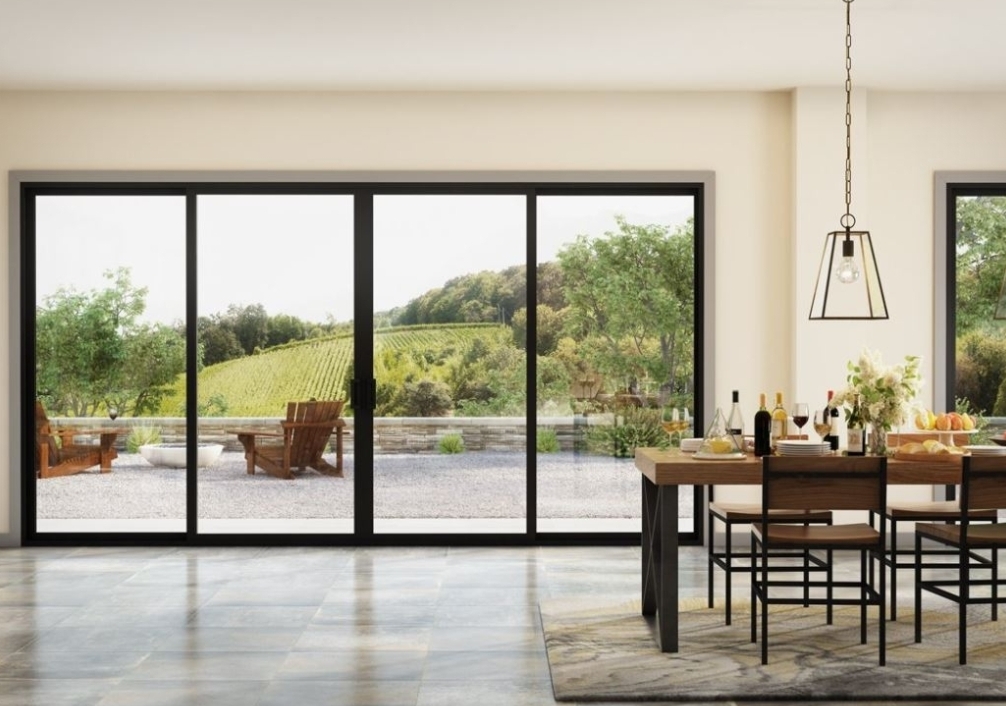When it comes to buying a sliding door, it’s essential to make an informed decision to ensure you get the best product that meets your needs. Sliding doors have become increasingly popular due to their space-saving and stylish features. Whether you’re looking for a sliding door for your patio, wardrobe, or room divider, there are several crucial factors you should consider before making a purchase. In this comprehensive guide, we will take you through the key aspects to pay attention to when buying a sliding door, empowering you to make the right choice that perfectly fits your requirements.
1. Material Matters: Choose Wisely
The first thing we need to consider is the material of the sliding door. The material plays a vital role in determining the door’s durability, appearance, and maintenance needs. Common materials used for sliding doors include:
a. Wood Sliding Doors
Wood sliding doors exude a classic and elegant charm, making them a popular choice for traditional and rustic-themed spaces. They offer excellent insulation and are available in various wood types, such as oak, mahogany, and pine. However, wood requires regular maintenance to prevent rot, warping, or fading due to weather exposure.
b. Aluminum Sliding Doors
Aluminum sliding doors are known for their modern aesthetics and durability. They are lightweight, low-maintenance, and resistant to rust and corrosion. Additionally, they offer exceptional energy efficiency and come in a wide range of colors and finishes.
c. Vinyl Sliding Doors
Vinyl sliding doors are cost-effective, versatile, and highly energy-efficient. They are resistant to dents, scratches, and fading, making them an excellent choice for high-traffic areas. With various design options, vinyl doors can mimic the appearance of wood or other materials.
d. Fiberglass Sliding Doors
Fiberglass sliding doors are gaining popularity for their durability and ability to withstand harsh weather conditions. They are low-maintenance and offer good insulation properties. Fiberglass doors come in various finishes and can be designed to resemble wood or other materials.
2. Design and Style: Complementing Your Space
The design and style of the sliding door should seamlessly integrate with your existing decor and architectural aesthetics. Consider factors such as:
a. Door Configuration
Sliding doors are available in various configurations, including single-panel, double-panel, and triple-panel designs. Choose the configuration that suits your space and usage requirements.
b. Hardware and Accessories
Pay attention to the hardware and accessories that come with the sliding door. Quality handles, locks, and rollers are crucial for smooth operation and long-lasting performance.
c. Glass Options
If the sliding door has glass panels, consider the type of glass used. Options may include clear glass, frosted glass, tempered glass for safety, or even decorative glass with intricate designs.
3. Size and Measurements: Precise Fit
Ensuring that the sliding door fits perfectly is essential for smooth operation and proper sealing. Measure the door frame accurately and consider the available space for the door’s sliding motion.
4. Energy Efficiency: Save on Bills
An energy-efficient sliding door can significantly impact your home’s comfort and utility bills. Look for doors with high energy efficiency ratings and features like weatherstripping to prevent drafts and maintain a consistent indoor temperature.
5. Security Features: Protecting Your Home
Security is paramount when choosing a sliding door. Look for features like multi-point locking systems and impact-resistant glass to enhance the door’s security and provide peace of mind.
6. Warranty and After-Sales Support
A reliable warranty and excellent after-sales support are indicators of a quality sliding door. Ensure that the manufacturer or supplier offers sufficient warranty coverage and responsive customer support.
In conclusion, buying a sliding door requires careful consideration of various factors, including the door’s material, design, size, energy efficiency, security features, and after-sales support. By paying attention to these essential aspects, you can make an informed decision and choose the perfect sliding door that complements your space and meets your specific needs.
Remember, a well-chosen sliding door can enhance the aesthetics and functionality of your home while adding value to your property. So take your time, research thoroughly, and invest in a sliding door that will serve you well for years to come.

